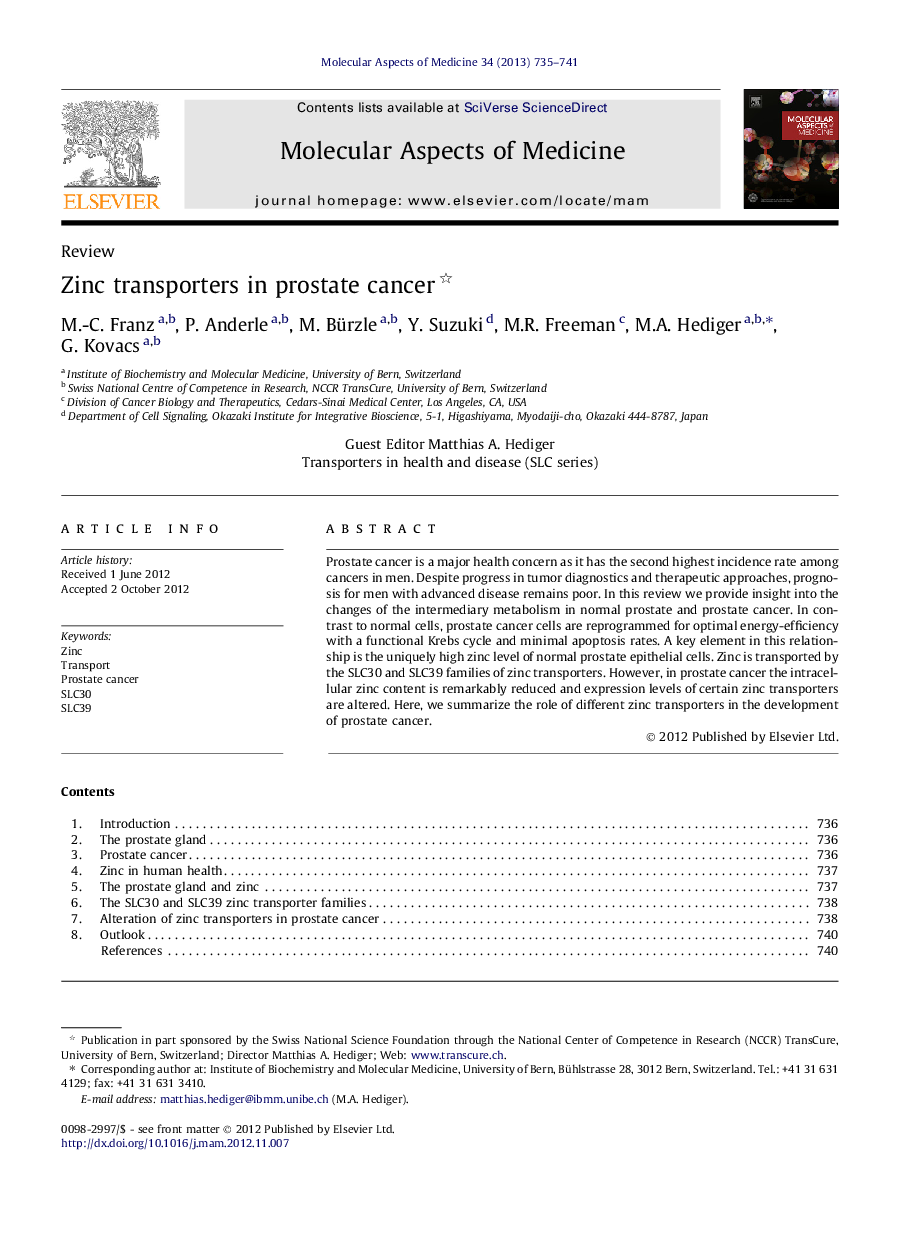| Article ID | Journal | Published Year | Pages | File Type |
|---|---|---|---|---|
| 8341615 | Molecular Aspects of Medicine | 2013 | 7 Pages |
Abstract
Prostate cancer is a major health concern as it has the second highest incidence rate among cancers in men. Despite progress in tumor diagnostics and therapeutic approaches, prognosis for men with advanced disease remains poor. In this review we provide insight into the changes of the intermediary metabolism in normal prostate and prostate cancer. In contrast to normal cells, prostate cancer cells are reprogrammed for optimal energy-efficiency with a functional Krebs cycle and minimal apoptosis rates. A key element in this relationship is the uniquely high zinc level of normal prostate epithelial cells. Zinc is transported by the SLC30 and SLC39 families of zinc transporters. However, in prostate cancer the intracellular zinc content is remarkably reduced and expression levels of certain zinc transporters are altered. Here, we summarize the role of different zinc transporters in the development of prostate cancer.
Keywords
Related Topics
Life Sciences
Biochemistry, Genetics and Molecular Biology
Biochemistry
Authors
M.-C. Franz, P. Anderle, M. Bürzle, Y. Suzuki, M.R. Freeman, M.A. Hediger, G. Kovacs,
